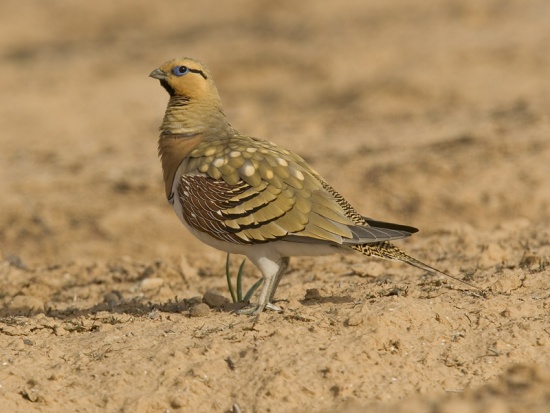| Line 23: | Line 23: | ||
==External Links== | ==External Links== | ||
| − | *[http://www. | + | {{GSearch|Pterocles+alchata}} |
| + | *[http://www.orientalbirdimages.org/birdimages.php?action=birdspecies&Bird_ID=1135&Bird_Image_ID=4507&Bird_Family_ID=121 View more images of this species on Orientalbirdimages] | ||
[[Category:Birds]] | [[Category:Birds]] | ||
Revision as of 10:17, 7 September 2007
- Pterocles alchata
Location: Negev, Israel
Identification
The Pin-tailed Sandgrouse (Pterocles alchata) is a medium large bird in the sandgrouse family. The Pin-tailed Sandgrouse is 31–39 cm long. Its head and upperparts are yellowish-green. The underparts are white with a chestnut breast band separating the belly from the green neck. Sexes are similar, but the female is shorter tailed than the male.
Males of the eastern race have duller underparts than the European birds, and the females have white, rather than yellow, wing coverts.
This sandgrouse has a small, pigeon like head and neck, but sturdy compact body. It has long pointed wings, which are white underneath, a long tail and a fast direct flight.
Distribution
The nominate race breeds in Iberia and southern France, and the eastern form P. a. caudacutus (Gmelin, 1774) is found in northwest Africa, and from southeast Turkey east to Kazakhstan. It is a partial migrant, with some Asian birds moving to the Middle East and northern India in winter.
Taxonomy
Habitat
This gregarious species breeds on dry open treeless plains and similar habitats.
Behaviour
Its nest is a ground scrape into which 2 or 3 creamy eggs with cryptic markings are laid. Both sexes incubate.
Flocks fly to watering holes at dawn. The call is a loud gatar-gatar.




